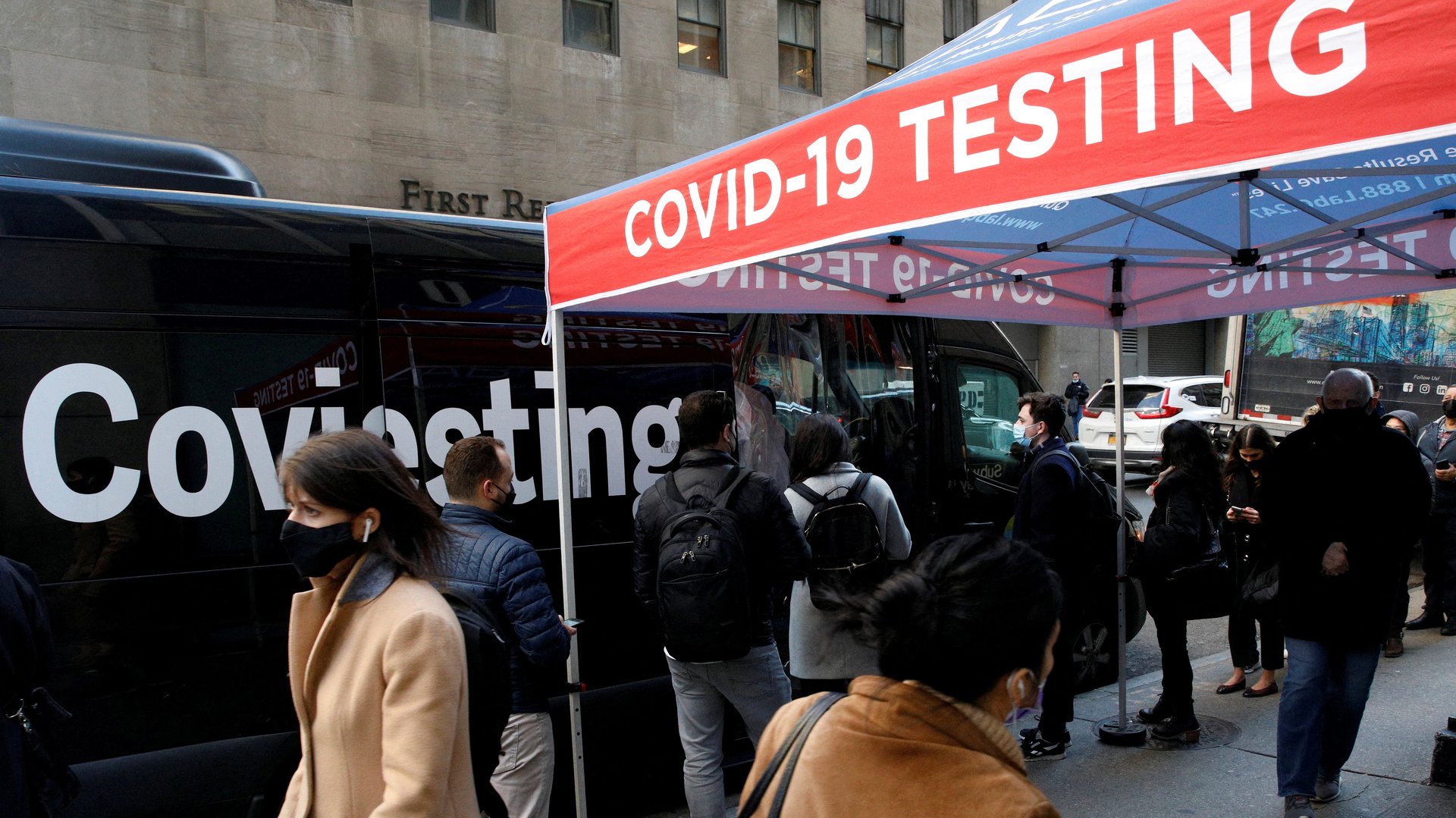Antigen or PCR: Which covid test makes more sense in the age of omicron?
So you think you’ve been exposed to covid-19.


So you think you’ve been exposed to covid-19.
If you live in the US, which on Dec. 29 hit a new record high for daily reported virus cases, you’re far from alone. “Right now, unless you’re living entirely by yourself and you haven’t encountered anyone, you probably have been exposed to someone who has covid,” says Gigi Gronvall, a senior scholar at the Johns Hopkins Center for Health Security at the Bloomberg School of Public Health.
Testing is one way to protect yourself and others from the virus, along with vaccination and proper masking.
There are several different tests available in the US right now, but they’re in short supply. In addition to availability, there are several other factors you might take into consideration when deciding between an antigen and a PCR test for covid-19.
When a rapid antigen test makes sense
If you’ve been exposed and have plans to see people in the coming days, you’ll likely want to get covid test results sooner rather than later. A rapid antigen test is handy under these circumstances, says Gronvall, because it delivers results in 15 to 30 minutes, “and you can act on that information right away.” So if you know you’ve been exposed and have plans to see a friend for dinner that night, a rapid test might help you decide if you need to cancel. (If you have symptoms, you should stay home regardless.)
Gronvall notes that omicron seems to be replicating faster than other variants, meaning an infected patient can transition from covid-negative to covid-positive more quickly. To avoid infecting other people, Gronvall recommends testing within a short time frame from an event where you’ll be seeing others, if possible.
The downsides to rapid antigen tests
Be aware that antigen tests tend to be less effective at detecting covid-19 than PCR tests, and have been hard to find in many parts of the country. The Biden administration plans to send millions of rapid tests to Americans in 2022, but for now some stores are still experiencing shortages.
When a PCR test makes sense
If you are unable to secure a rapid test or want a more accurate reading, you can seek out a PCR test at a pharmacy or local clinic. Results from these laboratory-based tests typically turn around in two to three days, and you should isolate as much as possible while waiting for the results.
Lab-based tests may also be a good option if you need documentation of a covid-19 test to travel abroad.
Avoid going out if you have covid-19 symptoms
Our understanding of omicron, and how it responds to testing, is changing daily. Just today, the Food and Drug Administration flagged new research from the National Institutes of Health suggesting antigen tests do detect the omicron variant, but may have “reduced sensitivity” to it.
If you test negative for the virus but are still experiencing covid-like symptoms, Gronvall says it’s best to presume you’re infected. Even if you haven’t tested positive, you should be particularly cautious about doing something around a vulnerable person, for example someone who is not fully vaccinated or is undergoing cancer therapy. “People should proceed with caution, especially if they’re going to be around others,” she says.
A test is just one way to protect yourself and others
Testing can be useful in containing the spread of covid-19, but it’s just one way of reducing your risks. If you’re serious about protecting yourself and those around you, be sure to get vaccinated for the coronavirus, and go back for a booster shot once you’re eligible. If you’re vaccinated and out in public, continue to wear a mask indoors, especially if you’re in a high-transmission area.